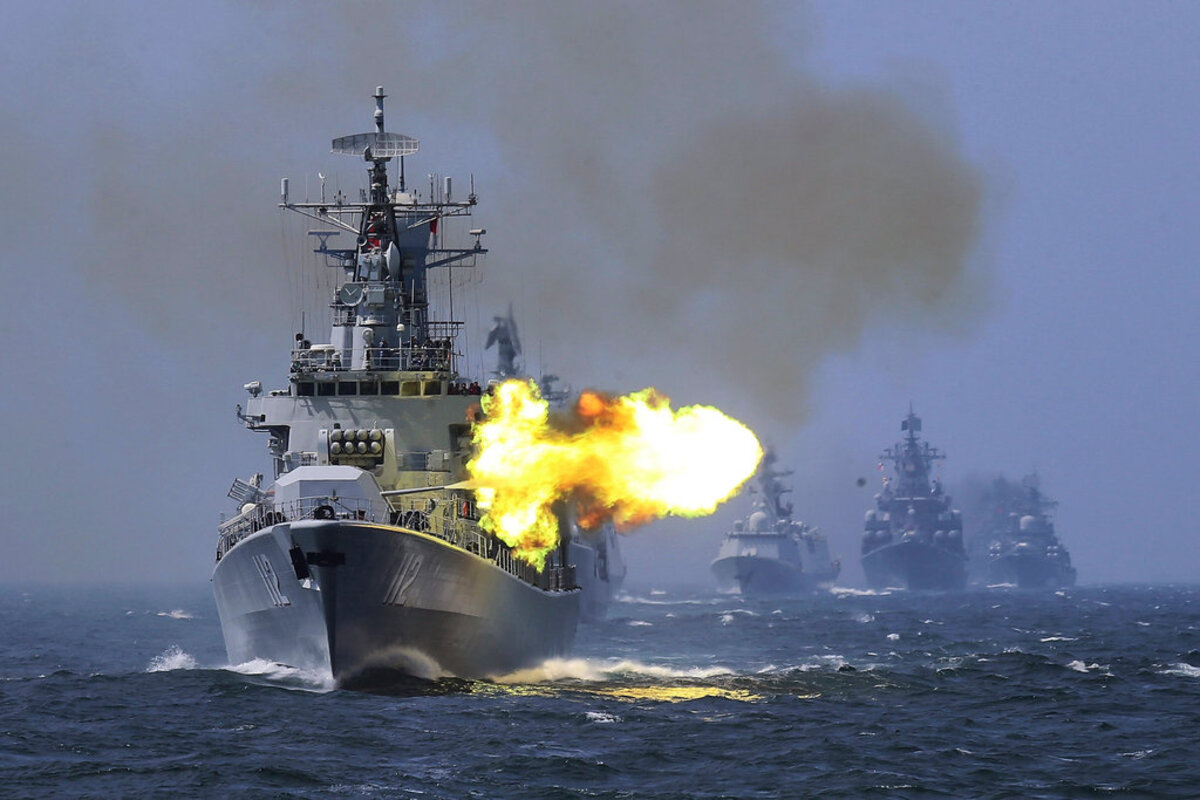Pacific Outreach~II
India is cognizant of the fact that Pacific Island nations are strategically located in the Pacific Ocean, connecting Asia with the Americas.
Soon after World War II, the tides of global politics turned. It became necessary for Australia to maintain close ties with both the UK and the US to resist communist advances in the southern Indian Ocean and the Pacific.

AUKUS – a trilateral security pact between the US, Australia and the UK – was announced on 15 September. Besides the Taliban crisis in Afghanistan, this has become the most significant political news of this year. Under the deal, the US and the UK will help Australia build up its naval presence in the southern Indian Ocean and the Pacific by adding nuclear submarines to its naval capabilities. The hidden agenda of the pact was to counter Chinese military and economic presence in the region. This may push all four powers into a arms race that would destabilize the marine ecosystems in the area.
Power games to control the Indian Ocean and Pacific shipping lanes have been going on since the last century. In the early twentieth century, Australia was dependent on the UK to maintain its naval front. During World War II, this dependency was interrupted as Japan took control of major UK strongholds such as Singapore. Thereafter, Australia looked to the US for protection.
Soon after World War II, the tides of global politics turned. It became necessary for Australia to maintain close ties with both the UK and the US to resist communist advances in the southern Indian Ocean and the Pacific. In 1965-66, Australia played a key role in managing the spread of communism in Indonesia.
In recent years, China has turned out to be a major threat to Australia. Australia is a major power in the region with its millions of dollars worth of grants and investments in Papua New Guinea, Indonesia, East Timor and Pacific nations such as Nauru, Kiribati, Fiji and Vanuatu. This indirectly keeps the strategic naval locations in South Eastern Pacific and Western Indian oceans such as the Makassar Strait and strait of Malacca free from Chinese influence. Otherwise, the whole maritime trade between America and India could come under threat.
Advertisement
The cold war era has also seen destruction of fragile pacific marine ecosystems. Between 1947 and 1962, US conducted near about 100 underwater nuclear tests in the Marshall islands. Between 1960 and 1992, France conducted 179 nuclear tests in the Moruroa and Fangataufa atolls of Polynesia. A report indicates that as many as 110,000 people were impacted by radioactive fallouts from these tests.
The consequence of nuclear testing on a fragile marine ecosystem is far-reaching. Radioactive isotopes of plutonium, strontium and caesium were released into the marine environment, causing radiation harm to all life.
The Pacific trade routes are the busiest shipping lines in the world. Wal-Mart, Target, Best Buy, Home Depot and Lowe’s imports are dependent on these trade routes. These routes are also important for energy imports from Middle Eastern nations – Saudi Arabia, Iraq and UAE.
The Pacific has endured devastating oil spills due to heavy maritime traffic in the region. Because of oceanic circulation patterns, world’s plastic waste has been gathering in the Pacific The size of this Great Pacific Garbage Patch is about 2.7 lakh square miles, which is almost equal to the size of Texas, America’s largest state. Since the last century, the Pacific has been slowly turning into the world’s garbage dump.
Marine ecology is the cradle of life. Life began in the prehistoric oceans. Evolution of higher life forms started in the marine environment. Recent studies indicate that fish species, diving mammals and crustaceans are all impacted by microplastic pollution. Coral reefs. are getting bleached due to marine pollution and sea acidification.
Australia lies at the crossroads of the world’s most important trade routes. It is also home to ther Great Barrier Reef, the world’s largest coral ecosystem. The Barrier Reef is home to 410 coral reefs, more than 1,600 species of fish, 2,000 sponge species, 14 sea snake species, and six of the world’s seven species of marine turtle. The AUKUS treaty prefigures a naval arms race between the western nations and China. Already the tensions are high between China, Taiwan, Malaysia, the Philippines, Vietnam and Brunei over control of the Spratly Islands in the South China Sea. Already the region is under stress from maritime traffic and pollution. An impending ‘cold war’ among regional powers over control of maritime routes could devastate the region’s already stressed marine ecosystems.
The writers are, respectively, Associate Professor and Dean, at Jindal School of Environment & Sustainability, O.P. Jindal Global University, Haryana, India
Advertisement